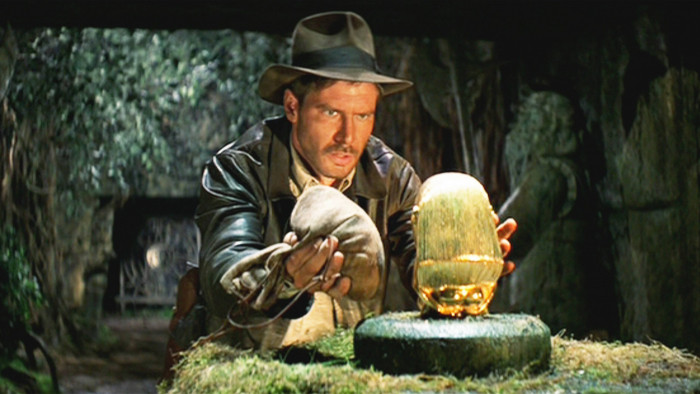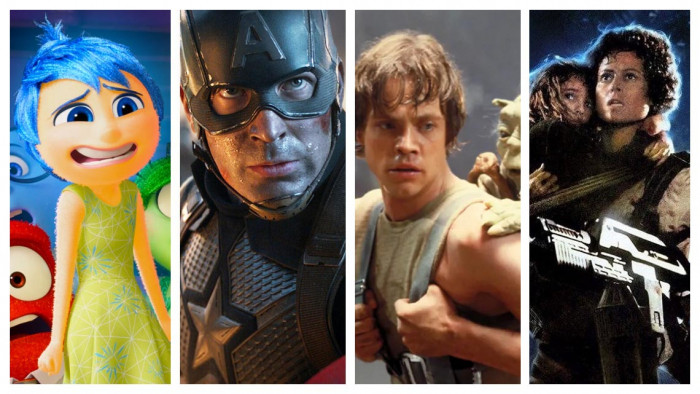1999 was a long, long time ago. In 1999 only weirdos used Macs, there was this new film called The Matrix that was blowing everyone’s minds, the charts were filled with gold like Mambo No. 5, All Star and Smooth (ft. Rob Thomas), and the Sony PlayStation didn’t have a number after it. It was just called the Sony PlayStation. It was a different world.
Crazy, crazy times. This was the most popular phone in the world, the Nokia 3210.

Everyone thought that phone was pretty much as good as things could get. You could type a very short message in less than a minute! Incredible! You could make a snake go round a sort of square pen thing until it crashed into its own midsection and died! Amazing! They were perfect things to do while your computer made a high-pitched roaring noise for about six minutes while connecting to the internet. Truly, this was the future.
Weirdly, one person saw the future almost exactly as it is.
David Gerrold, a sci-fi writer best known for writing the 1967 Star Trek episode ’The Trouble With Tribbles’ (the one with the silly furry ball things, later revisited in the Deep Space 9 crossover episode 'Trials And Tribble-Ations’) was asked by Esther Schindler, Technology Editor of Smart Reseller Magazine, how he envisioned the future of technology.
If you can’t read that, it says:
“I’ve got a cell phone, a pocket organizer, a beeper, a calculator, a digital camera, a pocket tape recorder, a music player, and somewhere around here, I used to have a color television.
“Sometime in the next few years, all of those devices are going to meld into one. It will be a box less than an inch thick and smaller than a deck of cards. (The size will be determined by what’s convenient to hold, not by the technology inside.) The box will have a high-res color screen, a microphone, a plug for a headset or earphones, a camera lens, wireless connectivity, cell phone and beeper functions, a television and radio receiver, a digital recorder, and it will have enough processing power and memory to function as a desktop system. It will be able to dock with a keyboard and full-size monitor. Oh yes, and it will handle e-mail, as well.
“Most important of all, it will have both speech recognition and speech synthesis. It will listen and respond in English or whatever language you need, and yes, it will be a translator, too. It will be an agent, going out and doing cyber-errands for you. For instance: I need a Japanese restaurant in Tulsa, near the Ramada Inn. Book a reservation and arrange transportation. If there’s no Japanese restaurant, try for Italian. Or, voice-mail Bob as follows: “Bob, we accept your offer, but we’ll need a draft of the deal memo by the 15th. Let me know if that’s a problem.”
“I call this device a Personal Information Telecommunications Agent, or Pita for short. The acronym also can stand for Pain In The Ass, which it is equally likely to be, because having all that connectivity is going to destroy what’s left of everyone’s privacy.”
He’s invented the smartphone, there. A few details aren’t quite right - while he’s right about the thinness of modern phones, few are smaller than a deck of cards, and there are a few more steps to booking a restaurant and getting a cab there - but it’s pretty uncanny, right down the the crippling invasions of privacy.
(BTW, Esther Schindler, who commissioned and shared this piece, suggests people read David Gerrold’s books. Her recommendation is When HARLIE Was One, a 1972 work about artificial intelligence.)
Is “Pita” a better name than “smartphone”? Both the smart bit and the phone bit of smartphone are close to meaningless now, as non-smart phones are thin on the ground, and phoning people is one of a smartphone’s least-used functions. Pita is just a bit… crap… though. It sounds (if you’re British, anyway) like Peter, which is either (a) a dude’s name or (b) a childish slang term for the penis. Don’t book a restaurant using your peter, you monster.
(Images: CBS, Wikimedia Commons, Pixabay)
Latest
Related Reviews and Shortlists


The 10 best war movies of the 21st century









